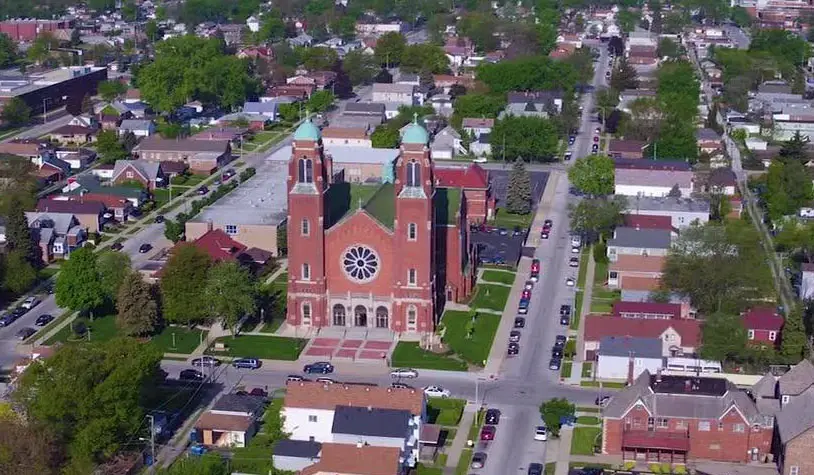CHICAGO (BP) – Religious freedom advocates praised a federal appeals court opinion that protects the freedom of churches and other religious groups in the face of government interference in employment decisions.
In a 7-3 decision Friday (July 9), the full Seventh Circuit Court of Appeals in Chicago ruled the legal doctrine known as the “ministerial exception” encompasses not only hiring and firing by religious organizations but the supervision of ministers during their employment. The opinion overturned a 2-1 decision last August by a Seventh Circuit panel in favor of a music director terminated by a Catholic church.
The case involved a hostile work environment claim by Sandor Demkovich, the music director at a Chicago-area Catholic church who alleged discrimination based primarily on his “sexual orientation” and health problems. When he was fired after marrying his long-time male partner, he filed suit against the church and the Archdiocese of Chicago.
In reversing its own panel, the Seventh Circuit Court said, “The First Amendment ministerial exception protects a religious organization’s employment relationship with its ministers, from hiring to firing and the supervising in between.”
Judging “hostile work environment claims based on interaction between ministers would undermine this constitutionally protected relationship” and “result in civil intrusion upon, and excessive entanglement with, the religious realm,” the court said in its majority opinion.
The Southern Baptist Ethics & Religious Liberty Commission (ERLC) and other faith-based organizations filed a friend-of-the-court brief in October 2020 that urged the entire Seventh Circuit Court to rehear the case, asserting that the three-judge panel’s decision “mandates extraordinary secular interference with core ecclesiastical judgments.”
“Church affairs are no place for secular governing authorities to exert influence,” said Chelsea Sobolik, a policy director for the ERLC, in written comments. “The brief we filed in this case strongly asserted this principle, and we are pleased the Seventh Circuit agreed with our perspective.
“This is a decision that religious freedom advocates, like Baptists, can celebrate. … [I]t is imperative that courts continue to affirm the ministerial exception because, to do otherwise, would render the separation of church and state meaningless.”
Daniel Blomberg, senior counsel for the religious-freedom organization Becket, said in a written release, “Worship is sacred. That’s why worship leaders who select and perform elements of worship are ministers of the faith, conveying its teachings to the faithful. That’s also why the church – not the state – gets to make sure that its music ministers are directing its congregation in a way that’s faithful to its beliefs.
“It’s common sense that if the government can’t tell a church which ministers to hire or fire, it also can’t manage churches’ ministerial relationships in between.”
Becket helped represent the church and the archdiocese in the case.
The U.S. Supreme Court ruled in a unanimous 2012 opinion – Hosanna-Tabor Evangelical Lutheran Church and School v. EEOC – a “ministerial exception” exists that enables churches and other religious institutions to hire and fire based on their beliefs. The high court reiterated its support for a “ministerial exception” in July 2020 with a 7-2 decision in another case involving the firing of teachers, Our Lady of Guadalupe School v. Morrissey-Berru. The ERLC signed onto briefs in support of a “ministerial exception” in both cases.
While the Seventh Circuit panel ruled those Supreme Court decisions did not apply in Demkovich’s case, the full court found otherwise.
Circuit judge Michael Brennan wrote in the majority opinion the rationale of the Hosanna-Tabor and Our Lady of Guadalupe decisions “is not limited” to charges of discrimination in firing. “The protected interest of a religious organization in its ministers covers the entire employment relationship,” including supervision, as well as hiring and firing, he wrote.
Though religious groups have no “general immunity” from civil laws, “procedural and practical problems abound [under either of the First Amendment’s religion clauses] when probing a minister’s work environment,” Brennan wrote.
Those clauses prohibit a law “respecting an establishment of religion, or prohibiting the free exercise” of religion.
In its opinion, the Seventh Circuit Court cited the brief signed onto by the ERLC, as the Supreme Court had done in the Our Lady of Guadalupe decision with the brief filed by the commission in that case.
Demkovich was hired in 2012 as the music director at St. Andrew the Apostle Parish, a Catholic church in Calumet City, Ill., and fired in 2014. Demkovich, who had been in a same-sex relationship for more than a decade, was overweight and had diabetes and an array of physical conditions known as metabolic syndrome. He alleged Jacek Dada, the church’s pastor and Demkovich’s supervisor, “discriminated against him based largely on his sexual orientation and his physical condition,” according to the opinion.
When Demkovich married his long-time partner, Dada called for the music director’s resignation because the union violated Catholic doctrine. When he refused to resign, the supervisor fired him.
In their brief to the Seventh Circuit Court, the ERLC and the other signers contended its three-judge panel’s opinion offered a “cramped conception of the ministerial exception” that the Supreme Court “has expressly rejected.”
The high court doctrine expressed in the two earlier opinions applies to certain employees “because their job entails exemplifying their faith and performing core religious duties,” according to the ERLC-endorsed brief. “Judicial scrutiny of the employment relationship between a religious group and its ministers inevitably invites unconstitutional interference with religious groups’ self-governance, no matter what kind of employment claim is involved.”
This article was written by Tom Strode, Washington Bureau Chief for Baptist Press. It was published on baptistpress.com.

